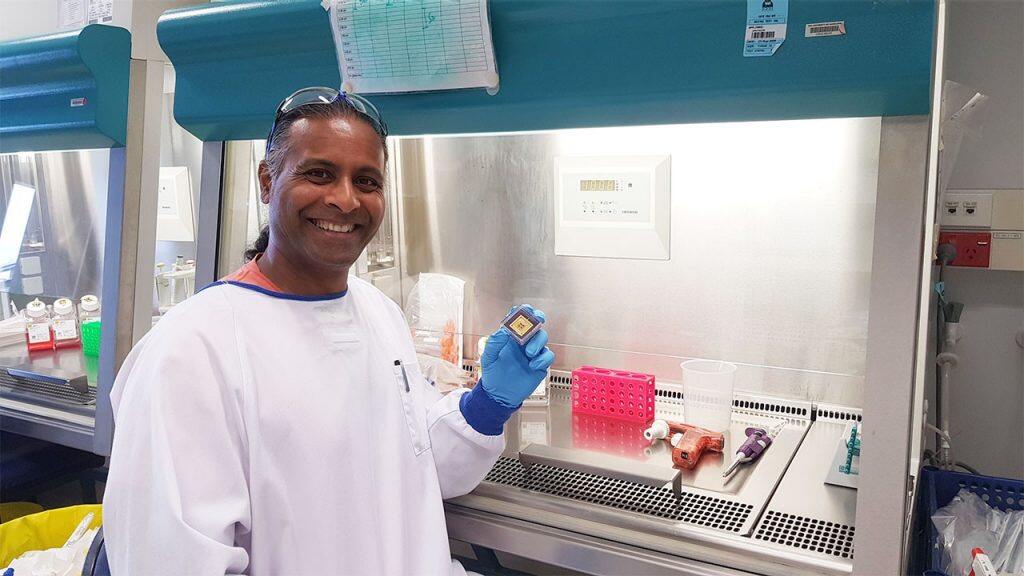Associate Professor Charles Unsworth from the Department of Engineering Science has been awarded a Royal Society of New Zealand James Cook Research Fellowship.


The Fellowship provides funding of $220,000 over two years to support his work in extending a transformative silicon chip technology, developed by his group, to better understand the communication that occurs within a lethal adult brain cancer.
Associate Professor Unsworth will also investigate potential therapeutic approaches for GlioBlastoma Multiforme (GBM), the most aggressive and lethal primary brain cancer in adults. There is no known cure for GMB and even with treatment combining surgery, chemotherapy and radiotherapy, the long-term survival rate is low, with only 5% of patients surviving for five years or more.
A fundamental pathway through which cells in the brain communicate is via calcium ion-channels which allow calcium to pass in and out of a cell. However, in GBM the number of calcium ion-channels becomes dramatically upregulated. This in turn leads to modified calcium communication in the brain, known as ‘calcium codes’ which can rapidly trigger the transformation of normal cells into cancerous ones.
Understanding the relationship of how each individual calcium ion-channel alters the calcium codes in networks of GBM tumour cells is relatively unexplored but critical to discovering new therapeutic strategies and approaches for treatment.
Associate Professor Unsworth’s Neural Engineering group have developed a transformative silicon chip technology to permit the precise construction of regular grid networks of human brain cells on a chip to map calcium communication accurately, from the single-cell level to large network scales.
The work involves collaboration with overseas laboratories accessing precious GBM resected tissue and state-of-the-art drug therapeutics. Associate Professor Unsworth’s vision is to extend the technology to aid clinicians to gain new and valuable insights into how ion-channels regulate their calcium codes in multi-cellular GBM networks and determine how GBM cancer talks at the network level and is affected by drug therapies.
Associate Professor Unsworth received his PhD in 1997 from the University of St Andrews, before conducting postdoctoral research at the University of Edinburgh. He joined the Department of Engineering Science in the University’s Faculty of Engineering in 2002 and established the Neural Engineering Group. He has recently been appointed Adjunct Professor of Neural Chip Technology at Tampere University in Finland and is an Associate Investigator at the MacDiarmid Institute Centre of Research Excellence.
“I am absolutely thrilled to be a recipient of a Royal Society of New Zealand James Cook fellowship. It is a lovely validation of the neural engineering research that my group has been performing in basic science over these past years”.



































